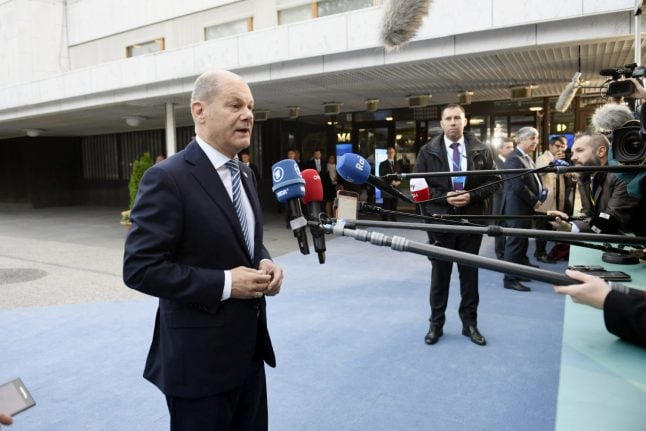The economy in Europe is in slowdown, tripped up by the US-China trade war and rising fears of a chaotic Brexit that have especially harmed export-powerhouse Germany.
To stave off a downturn, the ECB on Thursday cut its already negative interest rates and relaunched a round of bond-buying stimulus, but bank head Mario Draghi urged governments to do more to spark the economy.
The message was especially intended for fiscally-cautious Germany, and in a rare singling out of the eurozone's most powerful member, the head of the Eurogroup of eurozone finance ministers also took Berlin to task.
“My message is quite clear: countries with fiscal space should use it to counter the slow down of the economy,” said Mario Centeno, who is also Portuguese Finance Minister, in response to a question on Germany.
“And this must be done, not for reason of solidarity with the others but first and foremost for their own sake,” added Centeno who is usually very cautious in his treatment of Berlin.
Centeno spoke just days after the German government yet again unveiled a zero-deficit budget that flew in the face of the wide-ranging calls for more spending, including by the IMF, top economists and the European Commission.
France has voiced the loudest calls that Berlin abandon low spending, a point finance minister Bruno Le Maire repeated on Friday.
“We should not be satisfied with the level of growth within the eurozone,” Le Maire said as he arrived for talks with his EU counterparts in Helsinki.
“It is now the time to decide and have more investments, more growth, more prosperity and more jobs within the eurozone,” he added.
His Luxembourg counterpart, Pierre Gramegna, also urged more from Germany.
“Countries that have worked well to balance their budgets and have room for manoeuvre, should use it,” he said.
READ ALSO: 'Germany will do what's needed without new debts'
Germany is led by a fragile coalition, headed by centre-right Chancellor Angela Merkel, in which the centre-left has not dared snap five straight years of balanced budgets, a policy known as “black zero”.
But European sources told AFP that behind the scenes, Berlin was giving ground on the hot-button issue, with quiet pledges to deliver a spending package if the European economy turned starkly worse.
German Finance Minister Olaf Scholz was not drawn on the issue on Wednesday, insisting only that the ECB was an independent institution.
But earlier this week Scholz, who is centre-left, told German lawmakers the country was “in a position, with the financial fundamentals we have, to respond with many, many billions, if indeed an economic crisis erupts in Germany and Europe.”
'Count Draghila'
A German pivot to deficit spending would be historic and sure to face opposition of Scholz's governing partner, Merkel's centre-right CDU, which is already furious at the ECB's loose monetary policy.
German popular opinion is also highly sensitive on loosening the purse-strings, often depicted in the media as a sop to overspending southerners, such as Italy, Spain or France.
Reacting to the ECB's fresh stimulus, Bild, Germany's most read newspaper, on Thursday depicted Draghi as a Count Dracula sucking blood from German savers.
“Count Draghila is sucking our accounts dry,” the paper said.
In his monthly policy meeting on Thursday, Draghi said fiscal policy must become the “main instrument” for fixing the European economy.
By Alex Pigman



 Please whitelist us to continue reading.
Please whitelist us to continue reading.
Member comments